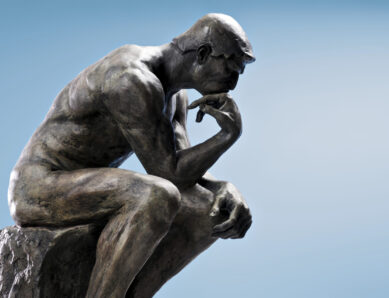I recently completed a self-assessment questionnaire, to discover what kind of learning best suited me.
The assessment was based on a model created by Alan Mumford and Peter Honey, and it divides learners into one of four categories: activists, reflectors, theorists, and pragmatists. A good many of my Mind Tools colleagues took the same test, and the results showed I was the only activist in a sea of reflectors and pragmatists.
On the plus side, it shows that I’m a live-for-the-moment, hands-on, exciting, keen-to-get-my-hands-dirty kind of guy. I’m also open-minded and willing to explore new experiences and situations. Not for me, the drudgery of actually planning anything, weighing up the options, and taking a measured approach to a problem!
On the downside, apart from the obvious drawbacks of leaping into action without sufficient preparation or planning, I’m characterized as an attention-seeking risk taker, who is likely to get bored quickly if a task involves detailed processes or drags on too long. I guess Mind Tools is pretty relieved to have only one activist in its ranks. Even I’d fear for the long-term prospects of an organization over-populated with “leap before you look” people like me!
The assessment was brought to mind after we posed our regular #MindToolsTips question to our followers and friends on Twitter and Facebook. We asked: Which is most important at work… action or observation?
And it seems while there are a few potential activists among you, most of you would fall into the categories of reflectors, theorists and pragmatists.
I’d hazard a guess that this Twitter trio of @RolandBP, @thewagsfelicia and @Qasimkhaan2 are fellow activists, who declared, simply, “Action.” No messing about, I approve!
Facebook user Kantharaj Kanth expanded on his declaration of action, saying, “Action 100%. My boss used to say, ‘When you work hard, you will be appreciated. Only while you create results/value will you be rewarded’.”
But the majority of you opted for observation, or wavered a little. Here is a selection of your replies:
- @uncleDon4: without proper observation you may take the wrong action.
- @christyneill: depends entirely on the situation.
- @yorkshireot: seek first to understand, then to be understood. Action follows observation.
- @RBSJGomez: observation, as this should inform your action!
- @GabrielaShearer: depends on the nature of your job. Example: if you are scientist it is observation.
- @krystallambert: observation in the stages of early learning. Action in the stages of implementation.
- @JayneVernon1: observation, as it’s wise to understand and be informed before taking action.
- @MarcAndreGaudet: observation ensures appropriate action. However, without action there is nothing to observe.
On Facebook, Minakshi Jain said, “It’s tricky. I think if we have the luxury of time, then observation comes first. If not, then action. The ideal would be to do both at once.”
Trina Gentry obviously gave the question a great deal of thought. She wrote, “My strength is in observation. What is working well, what are the different personalities, where are there weaknesses and areas that could use improvement? That said, neither action nor observation is more valuable. Everyone should utilize their own strengths and then there needs to be a synergy between the people, a yin yang situation, optimally.”
Many thanks to everyone who responded, it really is greatly appreciated. If you didn’t see our question on Facebook or Twitter, let us know your answer, below.




Comments
Yolande Conradie says
9 years agoI've always learned by observation. So to me observation will come first, but action will follow. They really go hand in hand, don't they?
Nicole Oliva says
7 years agoWhat good is it to know what type of learner you are if you do not use the information constructively to build up your team?
Midgie Thompson says
7 years agoThanks Nicole for sharing your thoughts and I agree that if we do not use the information we have, then what good does it serve. For me, this kind of insight into myself and others would help me to take a more balanced approach with things and help others to see and appreciate different perspectives and approaches. Plus, if I were putting a project team together, I would attempt to ensure that all the learning styles are represented.